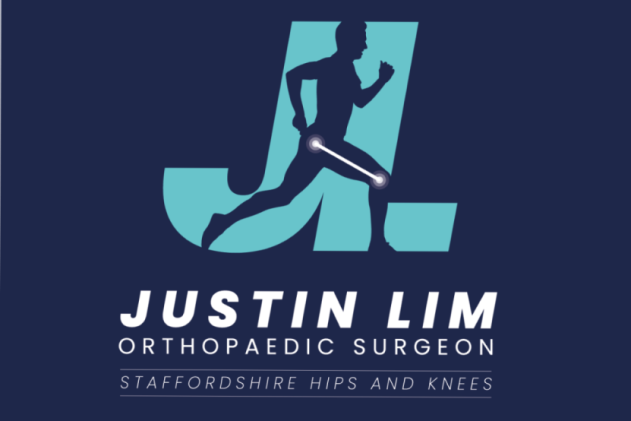Hip Replacement Surgery and Hip Problem FAQ’s
What causes hip problems?
Hip pain can be caused by several factors. If you have had a fall, sprain or accident resulting in a trauma to this area, that could be one cause. Hip problems can be as a result of a sporting injury, sometimes not necessarily of the hip joint itself but as a result of damage to the surrounding muscles and tendons.
One of the most common causes of hip pain may simply be normal wear and tear of the cartilage when we age, called osteoarthritis. This is the most common form of arthritis in the UK.
Trochanteric bursitis or greater trochanteric hip pain syndrome, tears of the labrum of the hip, labral cysts, acetabular cysts, impingement, piriformis syndrome, tendinitis, bone marrow oedema syndrome, stress fractures, avascular necrosis are among other causes of hip pain.
Establishing the location of the hip pain, the source of the hip pain and its severity is part of the diagnosis and will guide the best course of treatment.
What hip investigations are necessary?
X rays of the hip are helpful in the majority of cases. If you have had an xray or other scan done in another hospital, it is helpful if you can inform Mr Lim’s secretary several days before so that the hospital can ask for the images to be transferred.
In some cases, MRI scans, CT scans, ultrasound and diagnostic injections may be necessary.
What are the treatment options for hip problems?
Depending on the condition and its behaviour, treatment may take the form of open hip surgery, keyhole (arthroscopy) surgery of the hip, injections, physical treatments such as physiotherapy/chiropractic/osteopathy or simply advice on how to manage the problem without surgery. Sometimes a combination is needed.
What happens before a hip operation?
Before undergoing a hip operation Mr Lim will inform you of what is involved in the procedure and the best way to prepare yourself. This may include some exercises if you are able to. Improving or maintaining the strength and mobility in your hip area will aid your recovery. You will undergo a pre operation assessment and you will be advised on travel arrangements and what to bring with you for your hospital visit.
What is the hip replacement recovery time?
This depends on your health and fitness and the type of hip surgery you have undergone. Mr Lim is an expert in Enhanced Recovery Techniques, otherwise referred to as rapid or accelerated recovery, which will aim to reduce pain and have you mobile as soon as possible. Depending upon the type of surgery, you may be in hospital for an average of 1 to 3 days.
Why do I need hip surgery?
If your life is being severely affected by pain, stiffness or swelling and other types of treatment have not improved your condition, then hip surgery or a hip replacement might be required. Hip pain or pain around the groin and the upper leg, even when resting, are indicators that treatment is needed. If you have not responded to physiotherapy, or steroid injections, and you are experiencing discomfort which stops you from carrying out regular tasks around the house and garden or walking what you consider a normal distance, then an operation could be required,. To arrange a consultation to determine the best course of treatment for you please contact us today.
What are the different types of hip replacement?
Should it be decided that a hip replacement is the right procedure for you there are several options.
Total Hip Replacements
In a total hip replacement, the damaged hip joint is removed and replaced by a new ball attached to the top of the thigh bone and the socket area of the pelvis is also replaced. These components are either metal, ceramic or plastic. Hip replacement surgery typically takes about an hour to an hour and a half to complete. Orthopaedic surgeon Mr Lim will plan your surgery, choosing implants that best fit the shape of your bones. Hip replacement is one of the most common and most successful of operations that we can offer in orthopaedic surgery.
Partial Hip Replacements
This is called a hip hemiarthroplasty. In this procedure only the ball of the femur is replaced with a prosthesis and the cup part of the pelvis is left alone. This is usually done for fractures of the hip where the ball of the femur or its blood supply is damaged but cup is in good enough condition not to need surgical attention.
Hip Resurfacing
Hip resurfacing involves capping the femur head (the ball part of the joint) and the hip socket with a metal replacement. The procedure used to be much more common but since 2012, it has been in decline due to concerns over the metal on metal bearing. Mr Lim had already stopped doing hip resurfacings and other metal-on-metal hip replacements in 2009 and concentrated on modern hip replacements using metal/ceramic/plastic components with good track records and no concerns about metal on metal debris.
Types of Anaesthetic
Injections are typically carried out under local anaesthetic.
Hip operations are carried out under a general anaesthetic or under an epidural/spinal anaesthetic to numb the lower body combined with a sedative so that you sleep through it. Some patients prefer to stay awake and chat, others bring in headphones and listen to music.
